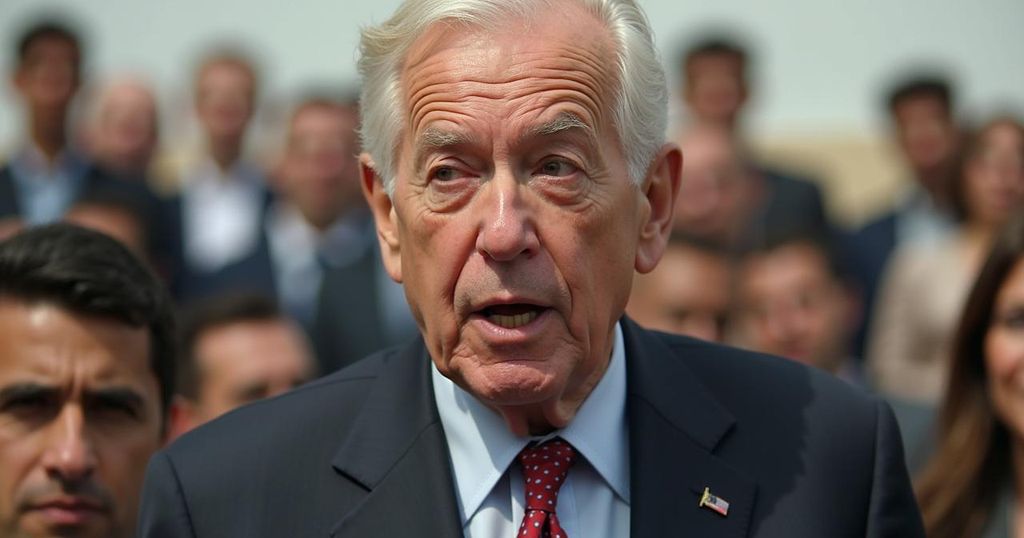House Republicans issued a report criticizing President Biden’s administration for the chaotic withdrawal from Afghanistan, emphasizing failures in planning. While the report minimizes former President Trump’s accountability, it asserts that both administrations share responsibility for the debacle. Key figures testified about the shortcomings in U.S. diplomatic and military strategies preceding the Taliban’s takeover.
On Sunday, House Republicans published a critical assessment of the United States’ withdrawal from Afghanistan, attributing the chaotic conclusion of the two-decade military engagement directly to President Joe Biden’s administration. This report seeks to downplay the influence of former President Donald Trump, who initiated the withdrawal agreement with the Taliban. The investigation documents the circumstances leading up to the final withdrawal that left numerous American citizens and Afghan allies vulnerable to Taliban reprisal following the hasty exit. While the report alleges a lack of adequate planning and a failure to heed early warnings regarding the Taliban’s rapid territorial gains, prior inquiries have implicated both Biden and Trump in the broader failures related to the Afghan withdrawal. Representative Michael McCaul, leading the investigation as Chairman of the House Foreign Affairs Committee, indicated that the administration had ample opportunity to prepare for the collapse of the Afghan government. “At each step of the way, however, the administration picked optics over security,” he stated, signaling frustration over what he characterized as poor decision-making processes within the Biden administration. The White House and House Democrats have dismissed the Republican-led report, citing it as politically motivated and emphasizing Trump’s role in creating the conditions for the withdrawal. In unveiling the report, House Republicans conducted an extensive review involving testimonies from high-ranking military officials and over 20,000 pages of documentation from the State Department. They contend that the Biden administration’s insistence on maintaining a large diplomatic presence in Afghanistan, despite escalating dangers, led to significant vulnerabilities for U.S. personnel on the ground. Republican lawmakers assert that significant lessons must be learned to prevent future missteps in U.S. foreign policy, particularly in situations involving rapid troop withdrawal.
The withdrawal of U.S. troops from Afghanistan represents one of the most significant foreign policy events in recent American history, culminating in a haphazard escape from the country in August 2021. After nearly 20 years of military engagement aimed, in part, at dismantling al-Qaida and preventing terrorists from using Afghanistan as a base of operations, the arrival of the Taliban in power prompted widespread concerns regarding human rights, particularly for women and former Afghan allies of the U.S. This report by House Republicans is the latest development in a protracted debate over the responsibilities of both Biden and Trump regarding the execution of the withdrawal agreement and the subsequent consequences of that decision.
In summary, the House Republicans’ report presents a pointed criticism of the Biden administration’s approach to the Afghan withdrawal, suggesting that significant foresight and planning could have mitigated the tragic chaos that ensued. However, it also reflects an ongoing partisan struggle that seeks to attribute blame while largely overlooking the shared culpability of previous administrations. The assessments indicate a critical need for reflection on U.S. foreign policy efficacy and the management of military engagements, particularly with regard to exit strategies.
Original Source: www.pbs.org






